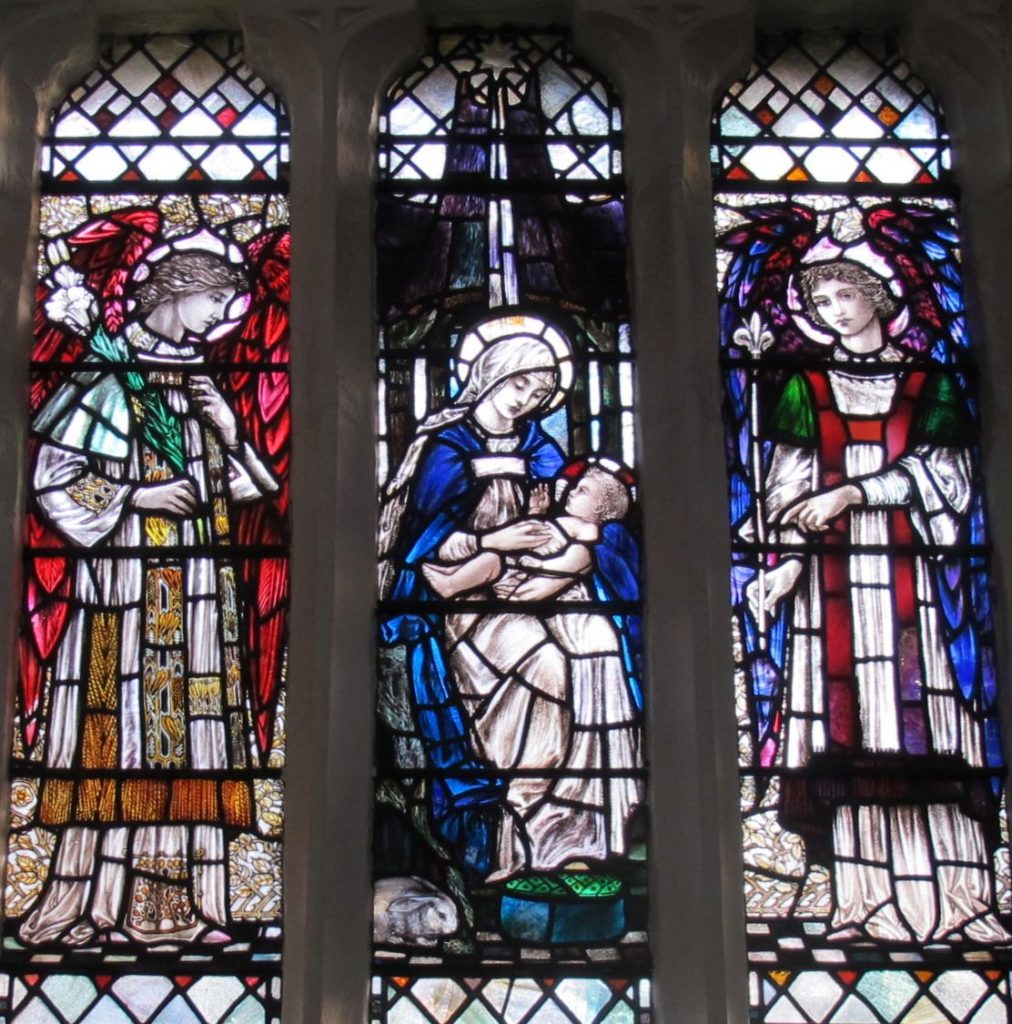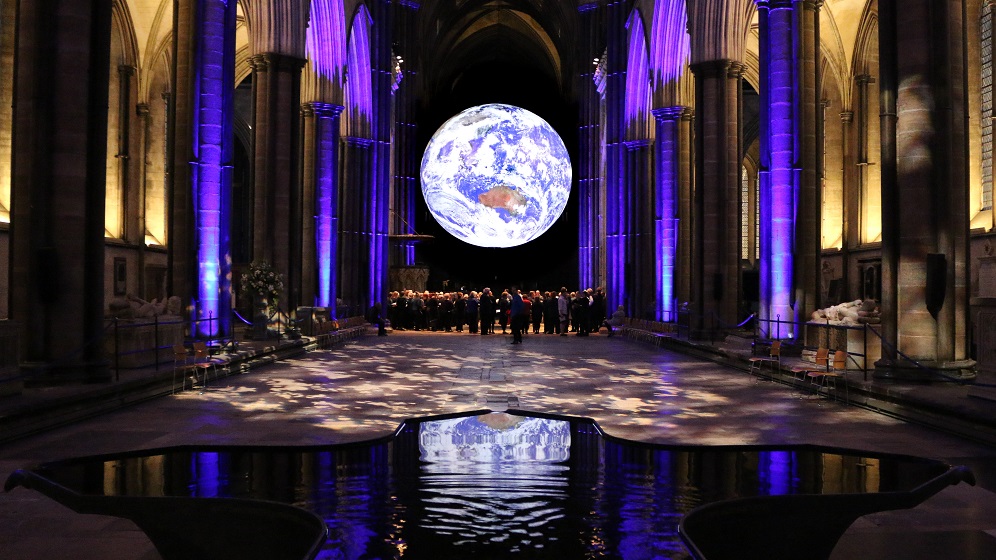
Artist Christopher Whall, photo (c) Stephen Craven
Today’s hymn from Sing Praise is ‘How shall I sing that majesty?’ by John Mason. I have heard or sung this often, and assumed it was modern (probably because the usual tune, as printed in the book, is). But in fact it seems the words date from the 17th century, though surprisingly they are nearly all words and phrases still in use today. The exceptions are the archaic pronoun ‘thy’ and the reference to sounding depths with a [plumb] line. John used a different tune in his video, but personally I prefer ‘Coe Fen’ as provided.
This is the day of the second ‘O antiphon’, this time ‘O Adonai’, that being one of the Jewish names for God, the one usually rendered as ‘Lord’ in English Bibles (or sometimes by the letters YHYW – see an explanation here) and referring to the one beyond our sight and knowing. So I picked this hymn which addresses God in his majesty in heaven.
The hymn picks up imagery from the book of Revelation, as well as other parts of the BIble, to imagine God’s angels constantly singing his praises around his throne, as they see his face, behold his brightness and understand his whole being. We on earth, by contrast, for all our natural and artificial light cannot see the light of God and are spiritually cold and dark, unable to praise God properly. We ask him to enlighten us with faith and love, the only things that can stir us up into praise.
These same ideas lie behind the Christmas story with the angels dazzling the shepherds and the heavenly light guiding the magi. Illustrations of the manger in Bethlehem often portray a warm glowing light around the child, or around the whole stable, while it is night outside. Our God comes to us in ways that show us the right way and warm our hearts to respond to him in song like the angels.
The illustration is a detail of a stained glass window in the south aisle of Whalley parish church, Lancashire, by the arts-and-crafts designer Christopher Whall. It depicts Mary with the infant Jesus and two angels.


